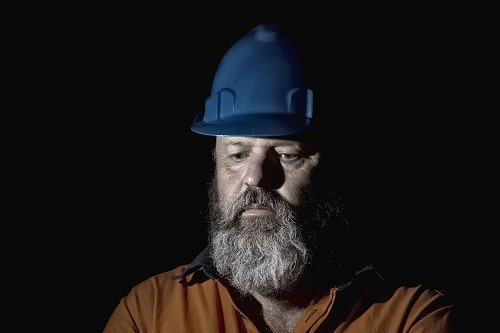London Underground staff working in parts of the network where particulate matter (PM2.5) levels are highest tend to take more sick leave than colleagues in less polluted areas, a new study led by Imperial College London has found.
News
Tube workers exposed to high dust levels take more sick leave, but more research needed: study
However, the study, published on 13 March in the Environment International journal, did not find enough evidence to prove a direct link between exposure to airborne dust on the Tube and higher levels of sickness absence. More research is needed, the study concluded.
 Photograph: iStock/MarioGuti
Photograph: iStock/MarioGuti
“We found that exposure to dust varied widely among staff, even among those doing the same job role, and depended largely on where they were working across the Tube network,” said Dr David Green from Imperial’s School of Health, who led the study. “For example, drivers who worked on older trains and on lines with deeper tunnels were exposed to more PM2.5 – as were customer service staff at stations with interchanges for multiple lines.”
While there was “some evidence” to suggest that London Underground workers exposed to higher pollution levels took more sick leave, added Dr Green, “this link wasn’t clear cut”.
The dust is caused by trains braking and the wear of wheels on the rails. PM2.5 levels on the London Underground can be 15 times higher than outdoor air in the UK capital, researchers found. Tube drivers have the highest exposure over a work shift, compared with other staff members, although this varies depending on which line they are working on.
“Train drivers on five out of eight lines showed higher rates of all-cause sickness absence, but no dose-response was seen,” said the study. Only drivers from one Tube line – the Central line – had taken more sick days in relation to respiratory infections, researchers found, after examining data from Transport for London’s (TfL’s) human resources department. The study, which covered almost 30,000 Tube staff between 1 January 2014 and 31 December 2019, is the largest of its kind.
The Piccadilly line was found to have the highest levels of particulate matter on the London Underground network, while the District line has the lowest.
The ASLEF union, which represents Tube drivers, has requested an “immediate meeting” with TfL management and medical professionals, to discuss the report’s findings.
“Levels of exposure for drivers, especially on deep Tube lines with old stock are far, far too high,” said ASLEF London Underground organiser Finn Brennan. “Our health and safety reps have repeatedly raised concerns about air quality with management. We believe that they have been far too slow to act. They have hidden behind the need for ‘more studies’ instead of moving rapidly to make improvements that would make the workplace safer.”
In the long term, measures such as modernising rolling stock and installing screen doors on platforms could help reduce PM2.5 emissions on the Tube, according to the study. Shorter-term measures include better ventilation and operational changes to reduce the amount of time staff members – particularly those with pre-existing medical conditions – spend in areas of the network where concentrations are highest.
While studies on the effects of outdoor air pollution on health have found clear links between exposure to PM2.5 and lung cancer, asthma and heart disease, the researchers noted that the effects in other environments, including places of work, are less well understood. Further research is therefore needed to confirm whether the same links exist in environments such as the London Underground, the study concluded.
The research was funded by TfL and the National Institute for Health and Care Research (NIHR).
NEWS

Ramadan: what employers should know about supporting their workforce
By Belinda Liversedge on 18 February 2026
As Ramadan begins this week, UNISON has reminded employers to think about reasonable adjustments for their Muslim workforce’s religious observance such as fasting, prayers, and flexible schedules.

Nearly half of UK workers afraid to flag risks, finds new research
By Belinda Liversedge on 10 February 2026
A significant “silence gap” is threatening UK workplace safety and operational integrity, according to new data released by training provider Mental Health First Aid (MHFA) England.
Sexual misconduct in dentistry: former GDC fellow warns of ‘culture of silence’
By Belinda Liversedge on 05 February 2026
A former General Dental Council (GDC) clinical fellow is calling for a radical shift in how the dental sector manages workplace risk, warning that a “culture of silence” is masking the problem of sexual misconduct in the profession.



